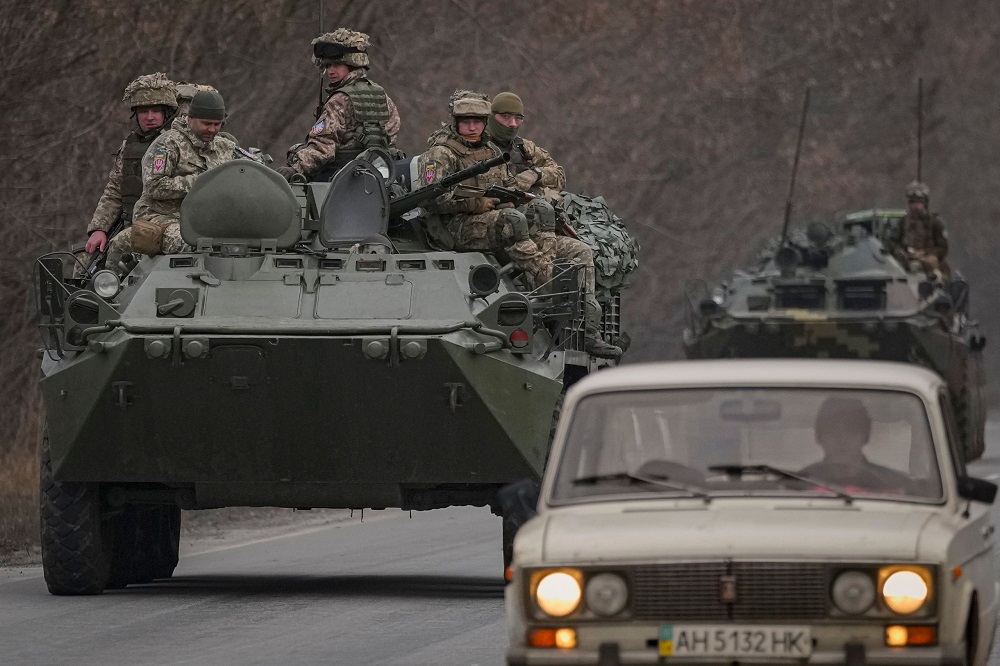Russia's invasion of Ukraine has the global economies worried, also prompting a question as to whether President Vladimir Putin's attempt to write history will hit hard the post-Covid growth recovery trajectory in some countries.
However, energy experts and economists in Bangladesh believe that there won't be any immediate impact of the invasion on this country's economy -- particularly in sectors like power, imports and exports -- though a long-term impact is imminent.
“I don't see any immediate impact on our energy sector although Russia is building our first nuclear power plant in Rooppur and involved in gas well drilling," eminent energy expert Dr M Tamim said.
The Bangladesh government has hired Russian nuclear energy firm Rosatom for building the Rooppur Nuclear Power Plant (RNPP) at a cost of $12.65 billion. However, Russia is supposed to provide a costly state loan to cover 90% of the project cost.
Besides, officials said, Rosatom has been paid $550 million for a feasibility study and the project design.
According to official sources, the power plant will have two units each having 1,200 MW production capacity. Of these, the first unit is nearing completion and expected to start commercial operations in 2023 while the second unit will be ready in 2024.
Similarly, another Russian state agency is engaged in the country’s gas sector.
In May last year, the Russian majority state-owned multinational energy corporation -- Gazprom -- obtained a contract for drilling three wells on Bhola gas field at a cost of Tk 648.39 crore (about $77.184 million).
As per the contract, Gazprom will take over the drilling work from state-owned Petrobangla’s subsidiary Bangladesh Petroleum Exploration and Production Company (BAPEX) which discovered the gas field.
Earlier, Gazprom had drilled a number of wells at different gas fields to enhance the production of the fossil fuel.
Dr Tamim said that there won't be any direct impact of the sanctions imposed by the US and some western countries on Russia "as these are very specific". “But if Russia fails to mobilise funds for the execution of the projects here due to the sanctions, their implementation could be delayed."
Secondly, he said, Bangladesh has to import huge quantity of petroleum and liquefied natural gas from West Asia. "If there is any supply shortage in the energy market due to the war, Bangladesh will have to buy the same at a higher cost."
Prof Ijaz Hossain, a former professor of the Bangladesh University of Engineering and Technology (BUET), said that Dhaka should be ready to face the challenges in the volatile global energy market.
Economist and research director of the Centre for Policy Dialogue, Dr Khondaker Golam Moazzem said the Russia-Ukraine war would pose a pressure on our economy. 'The price of petroleum and also LNG will go up if supplies get obstructed in the global market," he said.
He said that escalating energy prices could push up prices of essentials in the domestic market and "appropriate fiscal measures need to be taken beforehand". "Taking loans from multilateral donor agencies is the best practice in such a situation," he told UNB.
Apart from this, Bangladesh annually imports over 1 million metric tonnes of wheat from Russia while garment manufacturers here export about $1 billion worth apparels to the Russian Federation.
"The government should form a special panel to work in coordination with the ministries of foreign affairs, finance and commerce to overcome any possible impact of the Russian invasion on trade, especially exports," Dr Khondaker said.













-20260304091720.webp)




-20260303080739.webp)









-20260225072312.webp)





-20260228064648.jpg)
